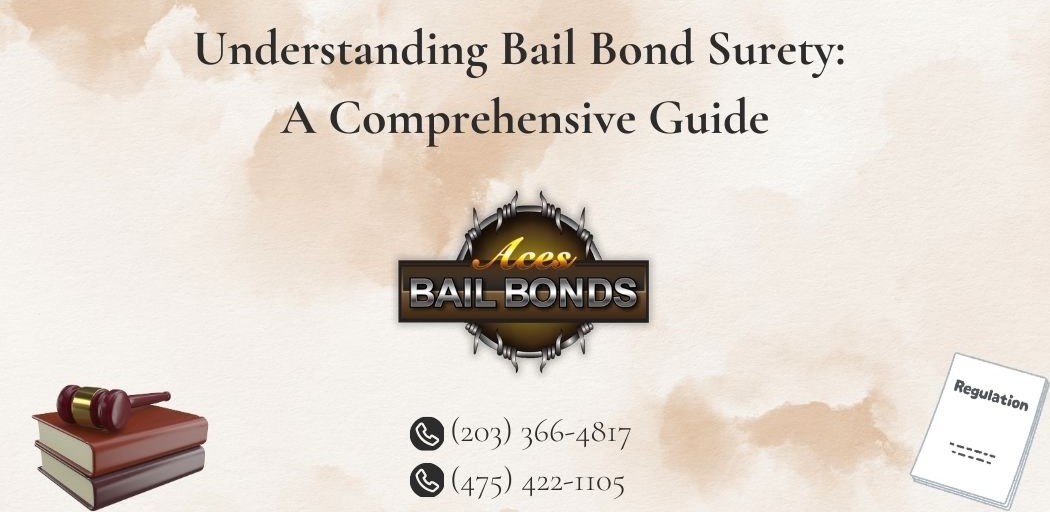Understanding Bail Bond Surety: A Simple Guide
Bail bond surety is a key part of the legal system. It allows defendants to be released before trial while making sure they appear in court. A licensed bail bond company acts as the surety, guaranteeing the court that the defendant will meet all conditions of release.
This guide explains how surety bail bonds work, the role of the bail bond agent, and what you should know about agreements, collateral, and forfeiture.
What Is Bail Bond Surety?
-
A surety is a third party, usually a bail bond company, that guarantees a defendant will appear in court.
-
The defendant or a cosigner pays a fee (called a premium).
-
The surety posts the bail bond with the court.
-
If the defendant fails to appear, the surety is responsible for the bail amount.
The Role of the Bail Bond Agent
A bail bond agent helps manage the bail process. Their role includes:
-
Posting bail on behalf of the defendant.
-
Explaining the surety agreement clearly.
-
Monitoring compliance with bail conditions.
-
Working with the court if issues arise.
Responsibilities of Sureties
When you act as a surety (through a bail bond company), you are responsible for:
-
Providing the bond – paying the court on the defendant’s behalf.
-
Ensuring compliance – making sure the defendant follows court orders.
-
Covering forfeiture – paying costs or losing collateral if the defendant skips court.
Types of Bail Bonds
-
Cash Bail: Full bail paid directly to the court.
-
Surety Bail Bonds: A bail bond company posts bail for a fee.
-
Property Bonds: Real estate or valuable property used as collateral.
Surety Agreements
A surety agreement is a legal contract between the court, the surety, and the defendant. It includes:
-
The bail amount and premium.
-
Any collateral pledged.
-
Defendant’s conditions of release.
-
Consequences for missing court.
Tips for Navigating Surety Agreements
-
Read everything carefully. Don’t sign until you understand the terms.
-
Ask questions. Your attorney or bail bond agent should explain unclear points.
-
Track court dates. Use a calendar or phone alerts.
-
Stay in touch. Communicate with your bail bond company and lawyer.
-
Know your risks. If the defendant skips court, you could lose collateral.
Collateral in Bail Bond Surety
Collateral protects the bail bond company against losses. It may include:
-
Cash
-
Real estate
-
Vehicles
-
Jewelry or other valuables
If the defendant meets all court requirements, collateral is returned. If not, it may be forfeited.
Forfeiture and Exoneration
-
Forfeiture: If the defendant fails to appear, the court orders the bond forfeited. The surety may lose collateral or pay the bail.
-
Exoneration: If the defendant attends all hearings and follows conditions, the bond is released and collateral returned.
Legal and Ethical Basics
-
The Eighth Amendment prohibits excessive bail.
-
States, including Connecticut, regulate bail bond companies and fees.
-
Bail bond agents must act with honesty, fairness, and confidentiality.
-
Defendants have the right to due process and fair treatment.
Quick FAQ
What is bail bond surety?
A third-party guarantee by a licensed bail bond company to ensure court appearances.
Do I get my collateral back?
Yes—after the case ends and all conditions are met, collateral is released.
How much does a surety bail bond cost?
Premiums are set by state law, usually a percentage of the bail.
Can a cosigner be responsible?
Yes, cosigners may be liable for unpaid premiums, forfeiture, or recovery costs.
Conclusion
Bail bond surety ensures fairness by allowing release while protecting the court’s interests. By understanding surety agreements, collateral, and responsibilities, you can protect your rights and avoid costly mistakes.
At Aces Bail Bonds, we provide trusted Connecticut bail bonds with clear agreements and 24/7 support. Call us at (203) 344-7483 for immediate help.

